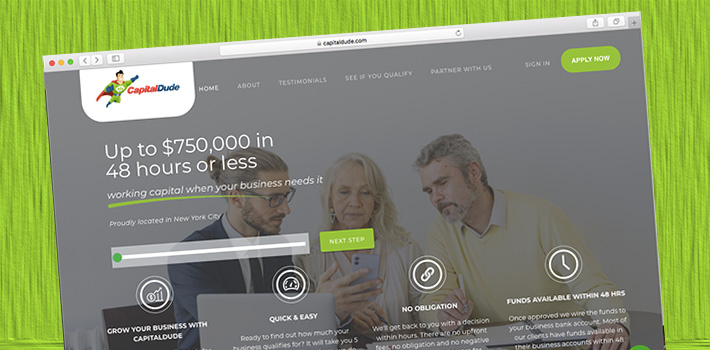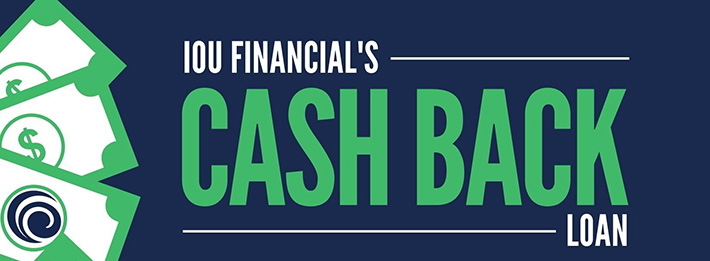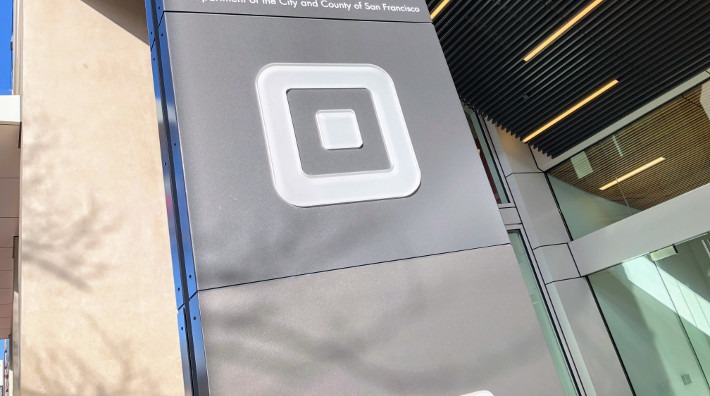Business Lending
What The “Capital Dude” Said About Experience, Success, and the Future
August 18, 2021 Coming in at rank #1,044 on the 2021 Inc 5000 list was a small business finance provider with a whimsical name, Capital Dude. Having some common ownership overlap with another Inc ranked company, Central Diligence Group (#2,893), the Dude told deBanked that they didn’t shut down or pause funding throughout 2020. In fact, they continued to grow.
Coming in at rank #1,044 on the 2021 Inc 5000 list was a small business finance provider with a whimsical name, Capital Dude. Having some common ownership overlap with another Inc ranked company, Central Diligence Group (#2,893), the Dude told deBanked that they didn’t shut down or pause funding throughout 2020. In fact, they continued to grow.
“We really have to attribute the company’s growth to our hardworking and efficient team that made sure we didn’t miss a beat while having to work remote,” said company partner Andrew Hernandez.
The name, Capital Dude, was chosen to convey an easy process to their partners and clients, the company says, while at the same time being compatible with a mascot they had in mind. The Capital Dude himself is a superhero in a green suit with the letters “CD” emblazoned on his chest. He’s also got a red cape and a flashy smile.
Behind the optics, however, is a seasoned team.
“We got started in the industry during the ’08 – ’09 recession,” Hernandez said, “so when you experience getting started during a downturn, you quickly realize that the only way to keep going is to stick to your principles while continuously taking inventory of the ongoing situation and making any necessary changes quickly in order to protect the portfolio. While both downturns were very different in how they played out, applying that previous experience to the past 18 months has been interesting as we have seen a lot of similarities that are very measurable.”
Central Diligence Group, meanwhile, has gotten repeat recognition on the Inc 5000 list.
“CDG offers consulting and underwriting services to other alternative financing companies in the industry,” Hernandez explained. The “short term plan is to scale out this portion of the business in 2022 via licensing of our platform to funders, funds, accredited investors, etc.”
The companies are currently in the process of moving to a new office and they expressed that they are “very bullish on the future” and plan to increase their headcount and continue to grow.
Small Business Finance on the 2021 Inc 5000 List
August 17, 2021Here’s where alternative small business finance ranks on the Inc 5000 list for 2021:
| Ranking | Company Name | Growth |
| 44 | Crestmont Capital | 7,404% |
| 1044 | Capital Dude | 463% |
| 1221 | Fountainhead | 394% |
| 2298 | Bankers Healthcare Group | 186% |
| 2427 | Fund&Grow | 173% |
| 2628 | Channel Partners Capital | 155% |
| 2803 | PIRS Capital | 142% |
| 2893 | Central Diligence Group | 135% |
| 3005 | ApplePie Capital | 127% |
| 3027 | Nav | 126% |
| 3365 | Onset Financial | 105% |
| 3394 | OTR Capital | 104% |
| 3547 | Forward Financing | 96% |
Did we forget you? Let us know at info@debanked.com
LoanMe Now Officially Part of NextPoint
August 11, 2021 The Canadian SPAC deal to merge LoanMe with Liberty Tax was finally completed last month after being announced in February.
The Canadian SPAC deal to merge LoanMe with Liberty Tax was finally completed last month after being announced in February.
The combined entity, NextPoint Financial, trades on the Toronto Stock Exchange under the ticker NPF.
“In just over a year from establishing this SPAC, we have closed two acquisitions that immediately create a financial services company with scale and opportunities for synergistic growth,” said Andy Neuberger, Chairman of NextPoint Financial. “With a management team and board comprised of proven executives and operators across the financial services, digital and retail sectors, we have very quickly created an organization that is set to impact how financial services are delivered to North America consumers and small businesses.”
The deal is especially significant in the small business finance space since it will place LoanMe’s small business loan and merchant cash advance products into 2,700 Liberty Tax storefronts throughout North America.
New York’s New Governor
August 10, 2021Now that Governor Cuomo is leaving office early, the Lieutenant Governor, Kathleen Hochul, will become his replacement. This detail is relevant given that New York’s landmark legislation (SB 5470) for the small business finance industry is slated to go into effect on January 1st.
Hochul served as Erie County Clerk and as a member of Congress. She’s also long been an advocate of small business.
While running on Cuomo’s ticket in 2018 for Lieutenant Governor, she criticized her opponent in a controversial campaign ad by saying that he couldn’t be trusted to manage the state budget because he had defaulted on a small business loan.
SB 5470 is expected to be so restrictive, that at least one small business finance provider has already fled the state.
AMEX: Kabbage to be the “Landing Point” for Small Businesses
August 5, 2021 Now that American Express has put “Kabbage to work” with a business checking account offering, the company shared what’s next during the Q2 earnings call.
Now that American Express has put “Kabbage to work” with a business checking account offering, the company shared what’s next during the Q2 earnings call.
“..what you’ll see ultimately is the Kabbage platform being the landing point for small businesses,” AMEX Chairman and CEO Steve Squeri said. “And the way you want to think about this is fintech with scale. And so when you think about Kabbage, which is a pure-play fintech in the small business space and you think about American Express and the small businesses, and you combine that together, you have a fintech at scale. Not a fintech growing at scale, a fintech growing from scale with a balance sheet. And so that has always been the vision of Kabbage. As you bring Kabbage into the bank holding company structure, you have to do some other things to future proof it, if you will, and that’s what we’ve been doing. But that’s what you will see.”
IOU Introduces the “Cash Back” Concept to the Small Business Loan Market
August 4, 2021 Immediately following news of a management shakeup, small business lending company IOU Financial introduced a first-of-its kind offering to eligible customers, cash back.
Immediately following news of a management shakeup, small business lending company IOU Financial introduced a first-of-its kind offering to eligible customers, cash back.
“Available only to qualified new clients,” as the announcement says, the IOU Cash Back Loan enables borrowers to benefit from perfect payment history by receiving 3% of the original loan back in the form of a cash rebate.
According to Carl Brabander, the new EVP of Strategy, this is not a gimmick where the rebate can only be applied to a future loan or loaded up onto a gift card.
“The merchant would receive the cash back amount by ACH directly to their bank account,” he writes, “provided they (a) have a perfect repayment history and (b) apply for the rebate within 30 days of repaying the loan, using the cash back certificate we would have sent them when the loan closed.”
Translated into dollars, this reward could be sizable given that IOU’s average loan size hovers around $100,000 and can go much higher.
“The IOU Cash Back Loan gives us the opportunity to give something back to new clients that put their faith in us to fund their growth plans,” said IOU CEO Robert Gloer in a public statement.
The cash-back loan concept was developed scientifically through focus group testing, the company claims.
The sudden flurry of activity emanating from IOU can probably be attributed to a deal struck last year when Neuberger Berman, an investment manager with $374B under management, acquired a 15% stake in the firm.
Brabander says that IOU is very bullish on the rest of the year and 2022.
“We see small business coming back strong now that the 2nd round of PPP has finished working its way through the system,” he says. “That’s why we’re investing heavily in products (ex. Cash Back), technology (our IOU360 platform) and distribution right now…”
Shopify Capital Originated $363M in MCAs and Business Loans in Q2
August 4, 2021 Shopify Capital originated $363M between merchant cash advance and business loans in Q2, bringing the first half total to $671.6M.
Shopify Capital originated $363M between merchant cash advance and business loans in Q2, bringing the first half total to $671.6M.
“Not only does Shopify Capital help fuel our merchants’ growth,” said Shopify President Harley Finkelstein in the quarterly earnings call, “our data tells us that merchants that accept Capital stay with Shopify longer as they succeed on the platform and take more of Shopify’s other solutions, namely Shopify shipping, apps, themes and domains and maybe most importantly, extending capital when their business needs it, reinforces the trusted relationship that we have with our merchants, one that goes beyond what they have with their bank or any other vendor. When we talk about Shopify’s flywheel, this is exactly what we mean.”
Shopify Capital is in the same league as rivals Square and Enova in terms of small business financing volume. Square Loans originated $1B for the first half, for example, while Enova has originated $722M.
Square Loans (Formerly Square Capital) Originated $627M in Small Business Loans in Q2
August 4, 2021 Square Loans, the lending arm of the fintech bank Square, originated $627M of its Flex Loans in Q2, according to the company’s latest announcement. That brings the year-to-date total to $1.02B across 167,000 loans. The numbers produce a rough average of only $6,000 per loan.
Square Loans, the lending arm of the fintech bank Square, originated $627M of its Flex Loans in Q2, according to the company’s latest announcement. That brings the year-to-date total to $1.02B across 167,000 loans. The numbers produce a rough average of only $6,000 per loan.
“After pausing flex loan offers from early March to late July of 2020, we continued to expand loan offers during the second quarter behind improvements in underlying Seller GPV trends, nearing pre-pandemic quarterly origination levels for core flex loans,” the company said.
Square is on pace to meet or eclipse its pre-covid volume. (It originated $2.3B in 2019.)
Square touted much bigger news in the past few days, however, its planned acquisition of Australia-based Afterpay in a $29B all stock deal.





























